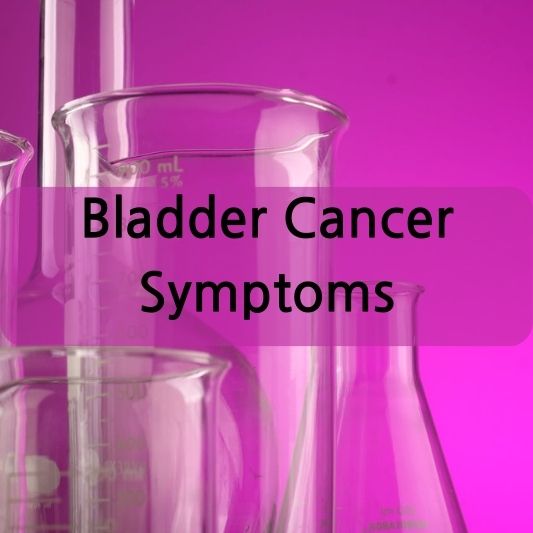Bladder cancer is a serious medical condition that requires early detection and treatment. Understanding its symptoms is crucial for timely intervention and management.

Common Signs and Symptoms
- Hematuria: One of the most common symptoms of bladder cancer is blood in the urine. While it might not always be visible, it can be detected during urinalysis.
- Frequent Urination: Individuals with bladder cancer may experience a sudden urge to urinate more frequently than usual.
- Painful Urination: Discomfort or burning sensation during urination can also be indicative of bladder cancer.
- Lower Back Pain: Some patients report lower back pain that persists despite treatment with over-the-counter medications.
- Pelvic Pain: Pain or pressure in the pelvic area is another symptom that warrants medical attention.
- Fatigue: Unexplained fatigue and weakness may accompany bladder cancer due to the body’s response to the disease.
Less Common Symptoms
- Bone Pain: In advanced stages, bladder cancer may spread to the bones, causing pain and discomfort.
- Swelling in the Lower Legs: Edema or swelling in the lower extremities can occur if bladder cancer has metastasized to nearby tissues.
- Weight Loss: Unintentional weight loss without changes in diet or physical activity can be a sign of advanced bladder cancer.
Causes and Risk Factors
Bladder cancer can develop due to various factors, including smoking, exposure to certain chemicals, and genetic predisposition. Individuals with a family history of bladder cancer or those working in industries with chemical exposures are at higher risk.
Diagnosis and Screening
Early diagnosis of bladder cancer involves a thorough medical history review, physical examination, urine tests, and imaging studies such as cystoscopy and CT scans. Regular screening is recommended for individuals with risk factors.
Treatment Options
Treatment options for bladder cancer depend on the stage and severity of the disease. Surgery, chemotherapy, and immunotherapy are among the primary modalities used to manage bladder cancer.
Surgery
Surgical interventions may include transurethral resection, partial or radical cystectomy, and urinary diversion procedures to remove cancerous tissues and preserve bladder function.
Chemotherapy
Chemotherapy drugs may be administered intravenously or directly into the bladder to kill cancer cells and prevent their spread.
Immunotherapy
Immunotherapy drugs boost the body’s immune response to target and destroy cancer cells, offering a promising treatment approach for advanced bladder cancer.
Lifestyle and Prevention Tips
Maintaining a healthy lifestyle, avoiding tobacco smoke, staying hydrated, and consuming a balanced diet rich in fruits and vegetables can help reduce the risk of bladder cancer.
Support and Coping Strategies
Living with bladder cancer can be challenging, but support groups, counseling services, and lifestyle adjustments can help patients cope with the physical and emotional impact of the disease.
Bladder Cancer Research and Innovations
Ongoing research and clinical trials aim to develop novel treatments and improve outcomes for patients with bladder cancer.
Impact of Bladder Cancer on Daily Life
Bladder cancer diagnosis and treatment can affect various aspects of daily life, including work, relationships, and mental well-being.
Living with Bladder Cancer: Patient Stories
Sharing personal experiences and success stories of individuals living with bladder cancer can inspire hope and raise awareness about the disease.
Bladder Cancer Awareness and Advocacy
Educating the public, promoting early detection, and advocating for research funding are essential steps in raising awareness and supporting the bladder cancer community.
Seeking Professional Help and Support Groups
Patients and caregivers are encouraged to seek professional medical advice and connect with local support groups for guidance and emotional support throughout their journey.
The Importance of Early Detection
Early detection and prompt treatment significantly improve the prognosis and quality of life for individuals diagnosed with bladder cancer.
Myths and Misconceptions About Bladder Cancer
Addressing common myths and misconceptions about bladder cancer can help dispel fears and encourage proactive healthcare-seeking behaviors.
Conclusion
Bladder cancer symptoms vary from person to person, and early detection is key to effective treatment and management. By understanding the signs, seeking timely medical attention, and adopting healthy lifestyle habits, individuals can take proactive steps to minimize their risk and improve their overall well-being.
FAQs About Bladder Cancer
Can bladder cancer be prevented entirely?
While it’s not always possible to prevent bladder cancer, adopting a healthy lifestyle and avoiding tobacco smoke and harmful chemicals can reduce the risk.
What are the survival rates for bladder cancer?
Survival rates vary depending on the stage and type of bladder cancer, but early detection and treatment can significantly improve outcomes.
Is bladder cancer hereditary?
While genetics can play a role in some cases, most bladder cancers are caused by exposure to environmental factors such as smoking and occupational hazards.
What are the side effects of bladder cancer treatment?
Side effects of bladder cancer treatment may include fatigue, nausea, hair loss, and changes in urinary function. However, these effects vary depending on the type of treatment.
Are there alternative therapies for bladder cancer?
Some patients explore complementary and alternative therapies alongside conventional treatments, but it’s essential to consult with healthcare professionals before pursuing such options.
Learn more about bladder cancer!
